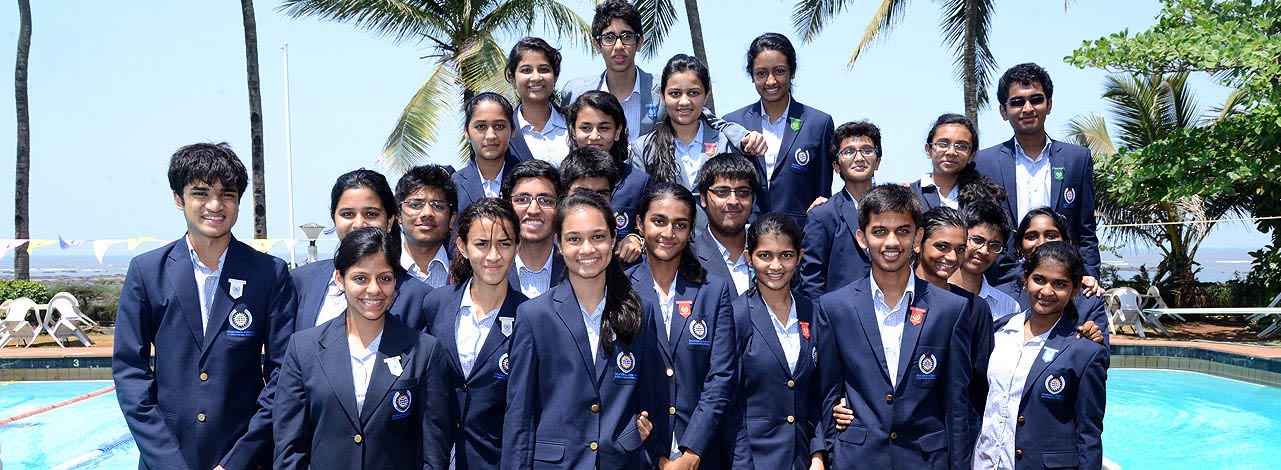frequently asked questions
-
What are the benefits of the IB Diploma Programme?Open or Close
Most importantly, perhaps, the IB Diploma Programme fosters the spirit of learning through inquiry and discovery – the finding out of the ‘why’, not just learning of the ‘what’. Its balanced combination of Arts and Science subjects avoids premature specialization, while its international perspective encourages students to learn about their own culture and those of others. Universities and employers thus know that the successful IBDP student is intelligent, well-organized, hard-working, internationally aware and capable of the critical and creative thinking that the 21st century demands.
A distinguishing characteristic of the Diploma Programme is a concern with the whole educational experience of each student. The learner profile and the core are positioned at the centre of the programme reflecting the priority given to it. The core requirements of theory of knowledge (TOK), the extended essay and creativity, action, service (CAS) broaden the educational experience and challenge students to apply their knowledge and understanding in real-life contexts.
-
Do I have to be a brilliant all-rounder to undertake the IB Diploma Programme? Open or Close
No, although it helps! The IB Diploma Programme is accessible to a wide range of students. It requires a willingness to persevere with a range of subjects, but this gives the breadth of education that universities appreciate. It is important to select your best subjects for Higher Level: these should be chosen on the basis of what you are good at, what you enjoy most and what you may need for your future career, e.g. Mathematics and Physics are essential for aspirant engineers. Your Standard Level subjects may also be those that you enjoy and in which you are succeeding, but may be the ones in which you are less confident – we are not all brilliant mathematicians or linguists!
-
How does the IB grade a student’s work?Open or Close
The candidates are graded on a scale of 1 (lowest) to 7 (highest) points in each of their subjects: HL and SL. For HL subjects Grades 4 to 7 are deemed ‘Pass’, whereas for SL subjects Grades 3 to 7 are deemed ‘Pass’. 3 more points may be awarded for the Extended Essay (EE) and work on the Theory of Knowledge (TOK) course. Thus, the maximum score possible is 45. Subject to satisfactory marks in all parts of the Diploma, it may be awarded for a minimum of 24 points.
-
Is the IB Diploma Programme recognised by universities worldwide?Open or Close
Yes, recognised and welcomed. It is, of course, sensible to check with universities before applying, but the list of countries recognizing the IB Diploma is long. Check the IB website: www.ibo.org
As per the IB Diploma Programme Research Review Study on perceptions of the Diploma Programme among institutions of higher education, since 2003, results have consistently shown that institutions had considerable enthusiasm for the IB Diploma Programme and confidence that the students who pursued it were well prepared for university study. Respondents from these surveys have commented that it enhanced university students’ academic competence and capability, gave them experience of greater breadth and depth, provided an internationalized educational experience with a greater emphasis on community engagement, and that it should be more widely adopted. For first year (freshman) study, academic learning, university life, course completion and graduate employment, the IB Diploma Programme was seen to provide a more effective preparation in comparison with other high school programmes offered in the world.
-
Is the IB Diploma Programme recognized in India?Open or Close
Yes. The Association of Indian Universities (AIU) recognizes the IB Diploma as equivalent to the Plus Two (10+2) Class of the Senior Secondary School, which is the eligibility criterion for admission to the undergraduate courses in India. The IB issues Indian equivalent percentages for the IBDP grades to those students who intend to apply to Indian universities.
-
What are the prospects of IB Diploma Programme graduates gaining admission to Indian universities?Open or Close
In most Indian universities, admissions are over by mid-June. However, the IBDP results are declared only on July 6. While overseas universities grant admission on the basis of predicted grades, most Indian universities require the final mark sheets issued by the Board. On our part, the School writes to colleges to which students seek admission, providing details like students' predicted grades, evidence of AIU recognition and the IBDP results timeline. The Mumbai University issues Provisional Statement of Eligibility Certificates to IBDP students, which facilitates admission of students to the various colleges and professional institutions affiliated to Mumbai University without the submission of the final grade results issued by the IB, on the grounds that the IB declares results late vis-à-vis the University’s admission timelines.
As per an announcement made by Mumbai University in January 2008, IB Diploma students with Physics and Mathematics at Higher Level and Chemistry at Standard Level are eligible to apply for Bachelor of Engineering (except for Chemical Engineering) at colleges affiliated to it. Similarly, those IB Diploma candidates with Mathematics at HL, Chemistry at HL and Physics at SL are eligible to apply for Bachelor of Chemical Engineering. Further, the IB Certificate holders will also be eligible to apply for various courses under the faculty of Arts/Commerce/Science at colleges affiliated to Mumbai University.
The IBDP students from our first nine batches have gained admissions to leading colleges, which include St. Xavier’s College, H.R. College, K.C. College, Poddar College, RamnarainRuia College, N.M. College, Jai Hind College, Sophia College, Wellingkar Institute of Management, K. J. Somaiya, Government Law College, Pravin Gandhi College of Law in Mumbai; D Y Patil Dental College and Hospital, in Navi Mumbai; FLAME (Foundation for Liberal and Management Education) and Symbiosis in Pune; Lady Shri Ram College in Delhi; Government Law College in Bangalore; National University of Juridical Science in Kolkata; Stella Maris in Chennai; St. Joseph’s College in Bangalore; Jindal Global Law School in Sonepat - Haryana and Institute of Hotel Management in Aurangabad.
-
Will an IBDP student be able to appear for the entrance examinations for admission to professional courses like engineering, medicine, management, law, and so on, in India and with what chance of success?Open or Close
While the IBDP learning methodology equips students to do well in the entrance examinations, the IBDP course structure and load requires students to devote substantial time to their IBDP studies. Most of the entrance tests are now conducted in April/May, while the IBDP examinations are held in May. As would be the case with any student, in order to be successful in the entrance tests, the IBDP students will need separate preparation focused on the requirements of such tests.
-
Do IB Diploma Programme graduates earn transfer credits at overseas universities?Open or Close
Yes. Considering the rigour and standing of the IBD Programme, universities in the US generally award advanced placement credits to IBDP graduates. Students who have scored high grades (grade 5 or above) in Higher Level IBDP courses stand a good chance of earning such university credits, resulting in saving six months to one year. However, such credits vary from university to university.
www.ibo.org

